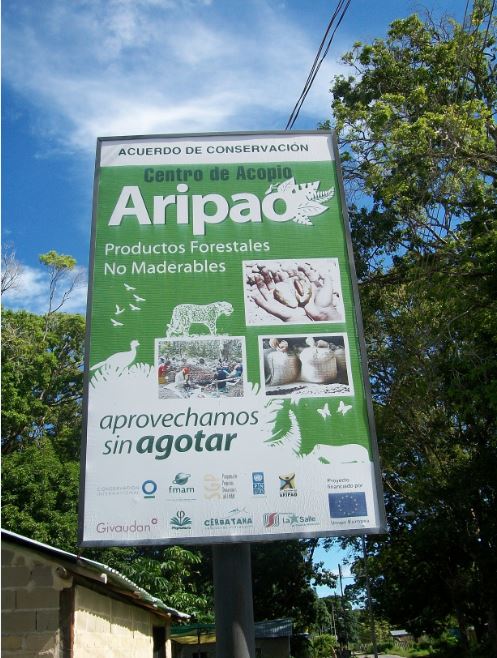

Para definir el Acuerdo de Conservación, los socios adaptaron y aplicaron el modelo de creación de alianzas trisectoriales. Este modelo ayuda a crear alianzas entre sectores con intereses diversos para promover iniciativas locales de desarrollo sostenible. En este caso, involucramos a la comunidad de Aripao, a la empresa Givaudan, compradora de los productos no madereros del bosque, y a Phynatura, organización de apoyo y articulación.
Para que este bloque tuviera éxito, fue necesario un proceso de comunicación eficaz, que indicara las prioridades y compromisos de cada sector y generara capacidades en aquellos miembros que necesitaran herramientas en los procesos de negociación. Dado que la sarrapia es el producto en el que se basa la alianza, estaba claro desde el principio que la preservación del bosque y el conocimiento tradicional eran elementos por los que todos los sectores debían trabajar.
La alianza trisectorial dependió de la construcción de consensos básicos entre autoridades gubernamentales, organizaciones de la sociedad civil y empresas privadas, en torno a temas prioritarios o sociales para los tres actores. El éxito de las estrategias vinculadas al desarrollo sostenible se facilita cuando cada sector conoce su función facilitando que las comunidades que dependen de los recursos naturales construyan medios de vida sostenibles.